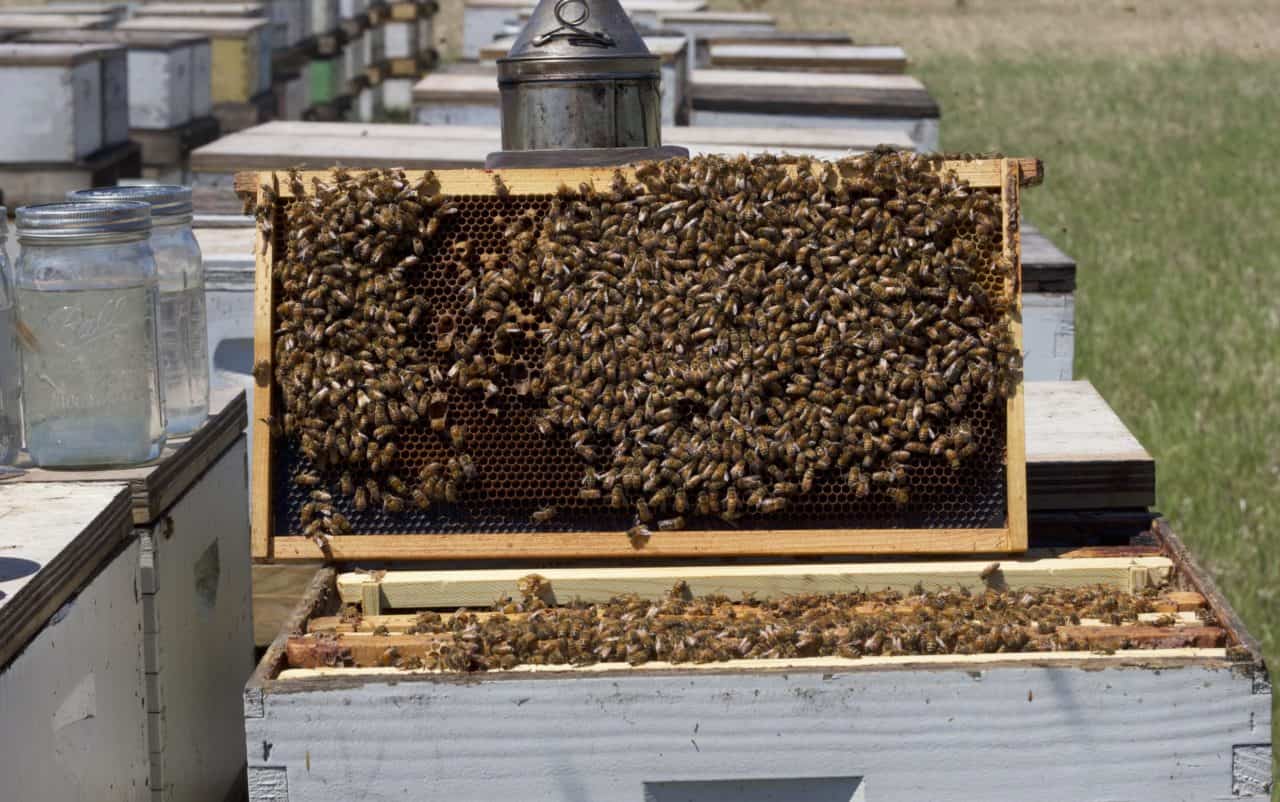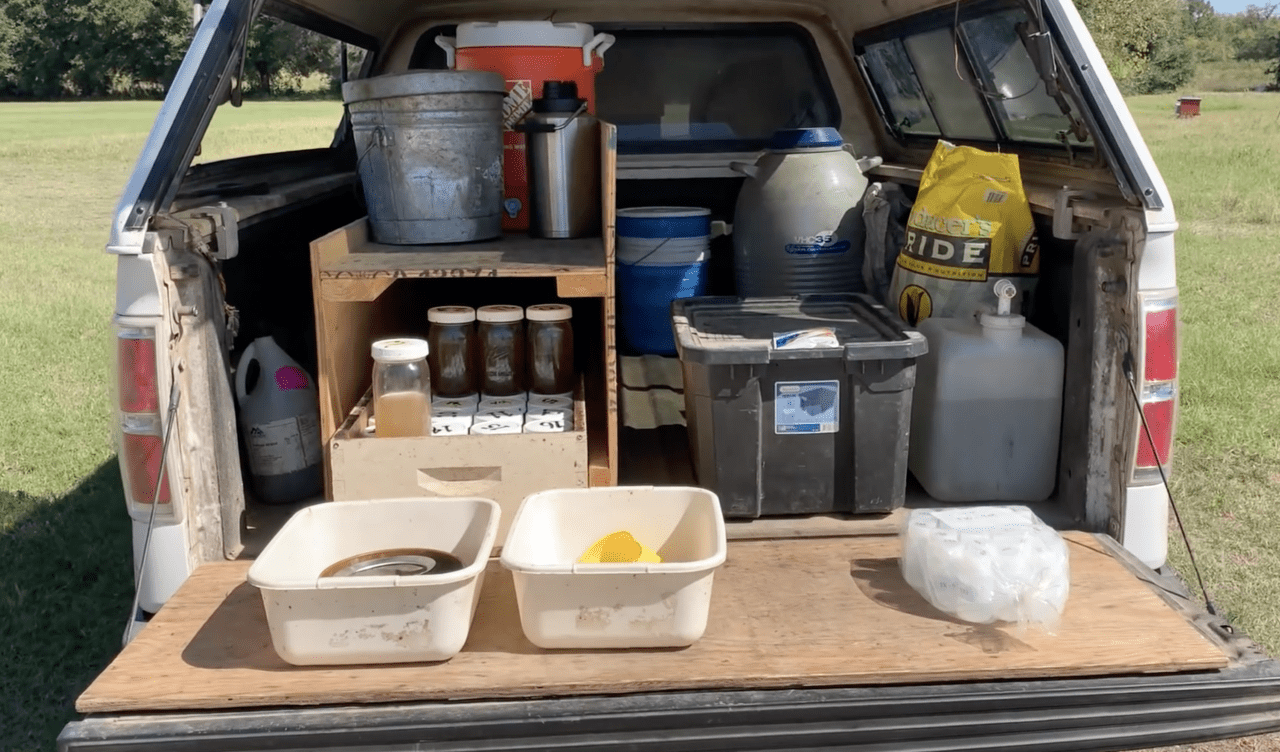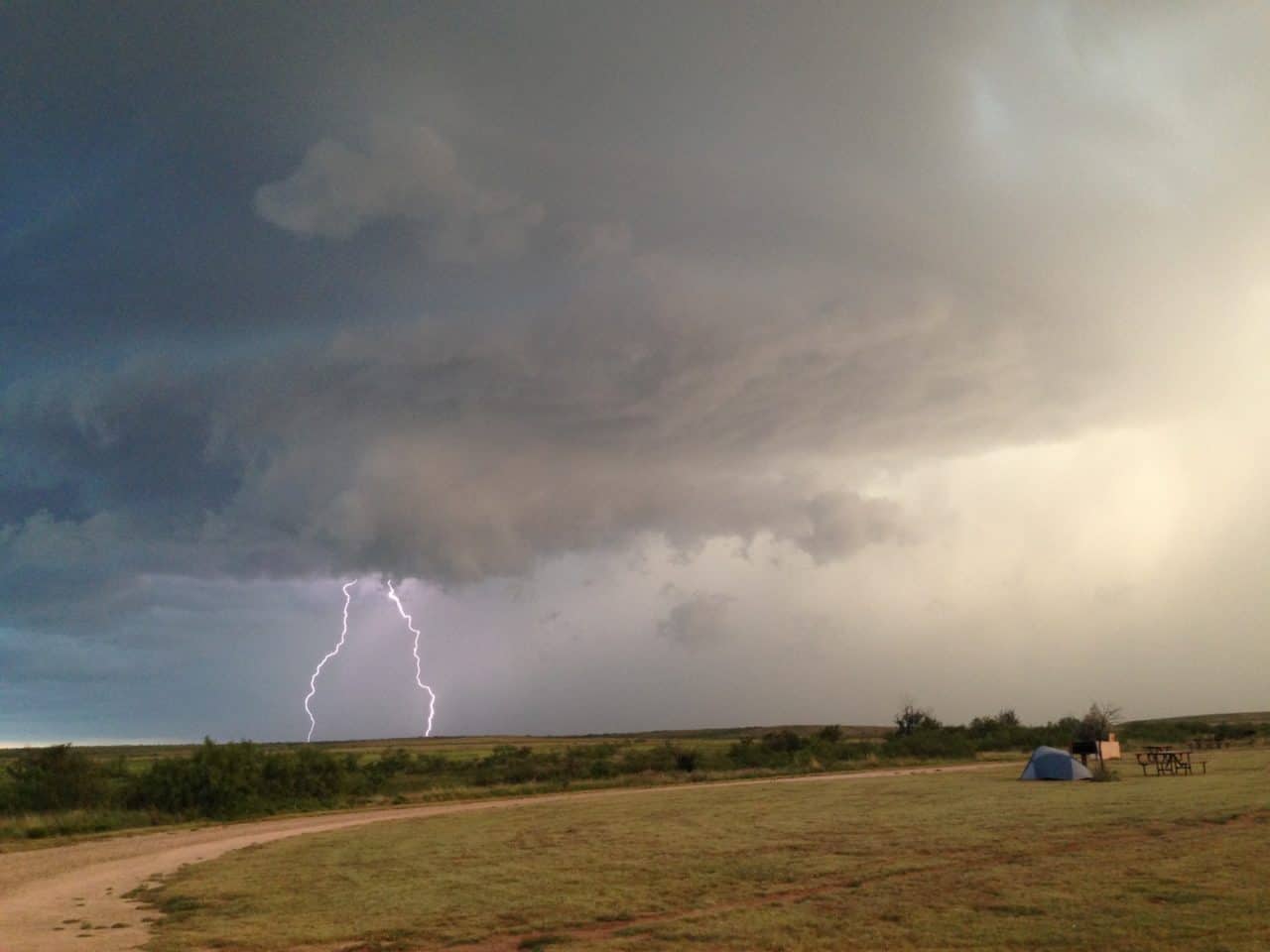* This is a profile of a 2019 paper: Use of Chemical and Nonchemical Methods for the Control of Varroa destructor (Acari: Varroidae) and the Associated Winter Colony Losses in U.S. Beekeeping Operations The Bee Informed Partnership (BIP) Loss and Management Survey is open for your responses for the whole month of April. We would like as many beekeepers as possible to fill it in during the remainder of the month. Every year that you fill out the survey you are making a valuable contribution to science, and to our understanding of what is going on in beekeeping around the country. With that in mind,…
Author: Dan Aurell
What’s in a BIP truck
Earlier this month, we posted a blog about some of the logistics behind the exhaustive work that the Tech Transfer Team Program accomplishes and our Board has highlighted some of the impacts they have made. Our Honey Bee Health Field Specialists drive around the country to inspect, sample, diagnose, report and consult on honey bee colony health and management practices. As reported, they drive A LOT! Their work truck functions like a mobile laboratory, filled with inspection and sampling equipment and there are many reliable electrical system you can count on to finish this work efficiently. You can read more about their truck content in…
American Foulbrood – Connecting Beekeepers with Diagnostic Resources
As a Field Specialist on the BIP Tech Transfer Team, part of my job is to help commercial beekeepers to “nip problems in the bud”. Here is a recent event that illustrates the impact we have through the Tech Team Program. While doing routine sampling for a beekeeper, I happened to find a colony that had every major sign of American Foulbrood. American Foulbrood, or AFB, is a bacterial disease of the brood, that used to be the major scourge of beekeeping. Inspection programs, careful follow-up by beekeepers, and antibiotics for treatment and prevention probably have all helped reduce its impact on bee health. However,…
Flame in the Bee Yard: Relighting a Smoker the Easy Way
The Scenario We’ve all experienced a smoker going out just when we need it. Sometimes we may simply forget to pump the bellows for too long while we are getting some other things ready; sometimes we may make the mistake of stuffing the fire chamber too tightly with fuel before the fire has a good chance to catch. At other times our smoker may go out during travel between bee yards. Any of these scenarios sound familiar? The Traditional Method So, when your smoker goes out for the umpteenth time, what do you typically do? You could re-open the smoker, dig in there, take out…
Fried Drone Brood – A healthy and savory snack?
I live close to the town of Snook, TX – where the local roadhouse is renowned for its chicken fried bacon. This dish inspired a thought; why not fry something shocking myself? I was using drone brood removal as a method of mite control in a couple colonies, and they were producing a lot of drone brood around the time of the privet (Ligustrum sp.) flow. I’m a whole lot less squeamish about eating honey bee immatures than I would be about a lot of other insects. After all, honey bee brood is enjoyed as food in large parts of the world. The tricky step…
Data-Driven Applications for Beekeepers
With the withdrawal of Fumagillin from the market, there has been renewed interest among queen producers and honey producers alike in finding ways to control Nosema infection in their bees. The Texas BIP team recently helped a beekeeper look at whether essential oil patties or a sprayed-on probiotic would help reduce the Nosema load of spring splits. 30 colonies (8-12 colonies per group) were sampled for Nosema at time of check-back (mid-April 2018) and randomly selected to be part of one of three groups: untreated control, essential oil, or probiotic. When Nosema loads were sampled again (mid-May 2018), the levels had gone down in all groups in accordance with the usual seasonal pattern.…
Everything is Bigger in Texas
I have been working in Texas for the Bee Informed Partnership since May, 2017. Many US commercial honey bee colonies are part of migratory beekeeping operations, so I have been on the road a great deal of the last 5 months helping beekeepers monitor the health of their colonies. I have been in a lot of bee yards in the Dakotas this past summer, and I’ll be going to California when the hives are trucked there to pollinate the almond orchards in the spring. Some of the beekeepers I work with keep their bees in Texas all…



